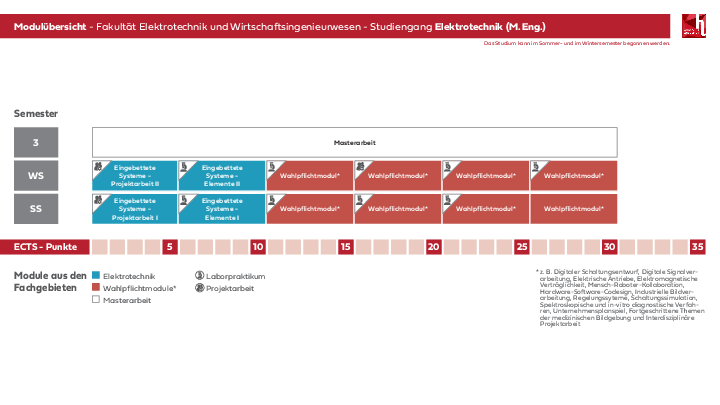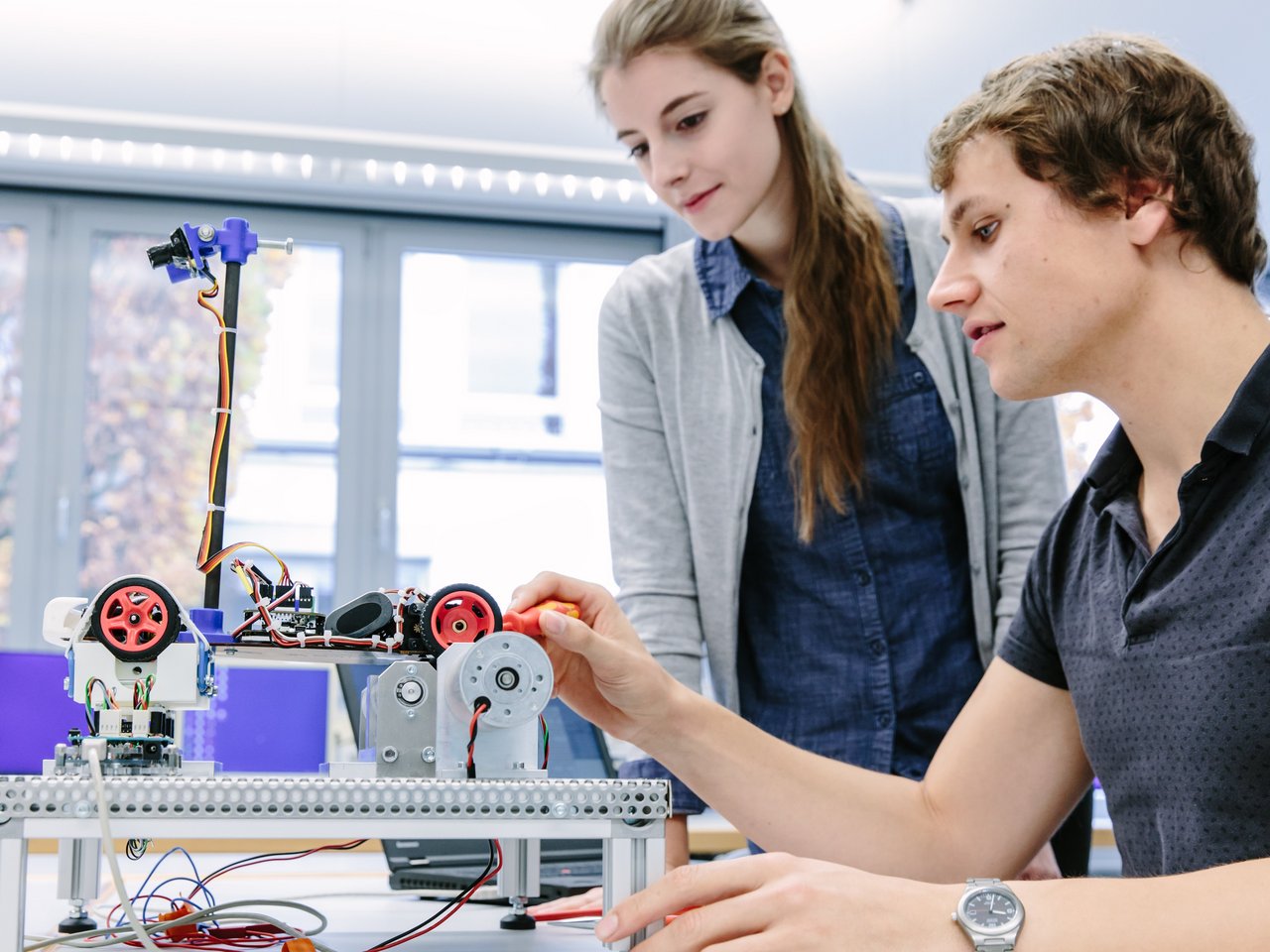
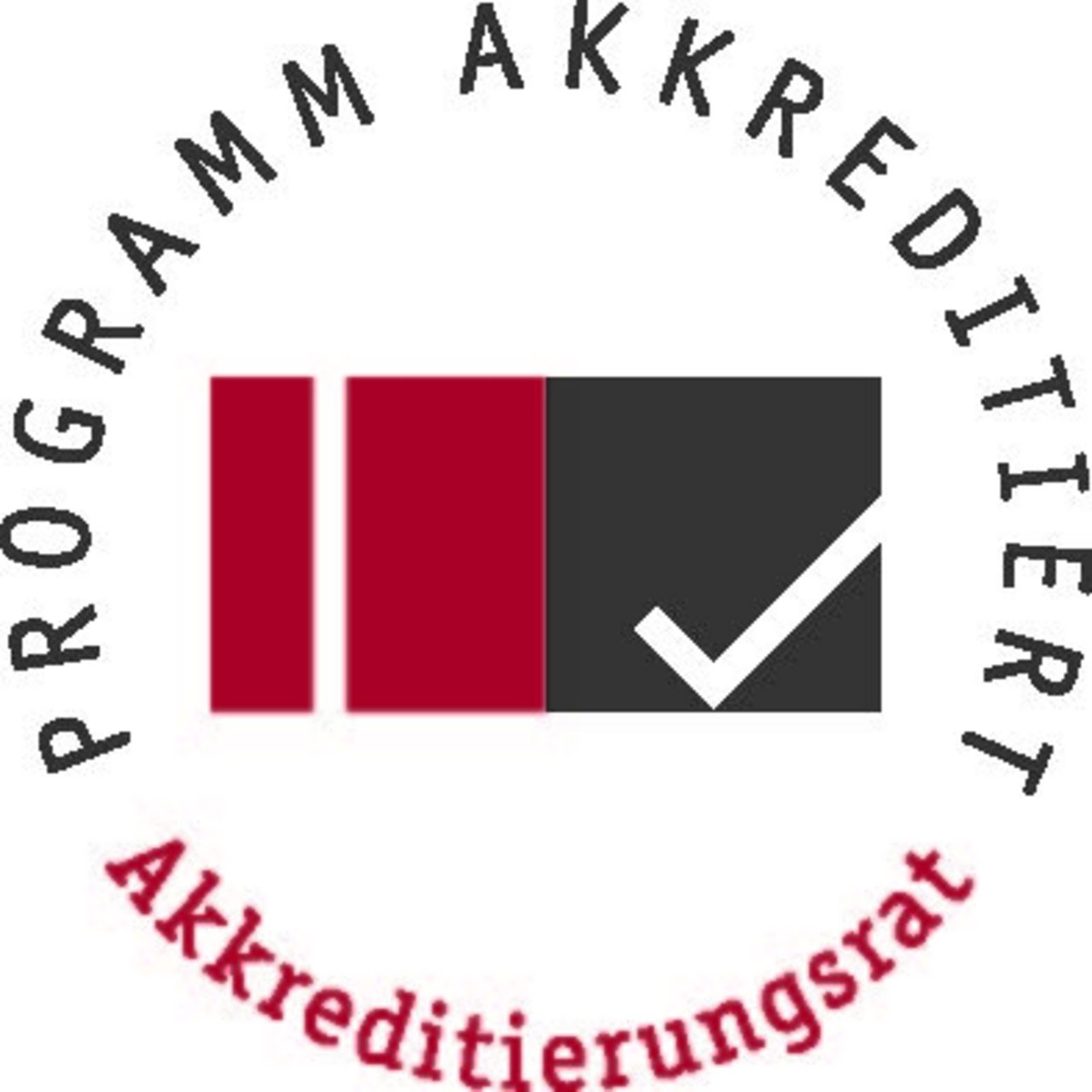
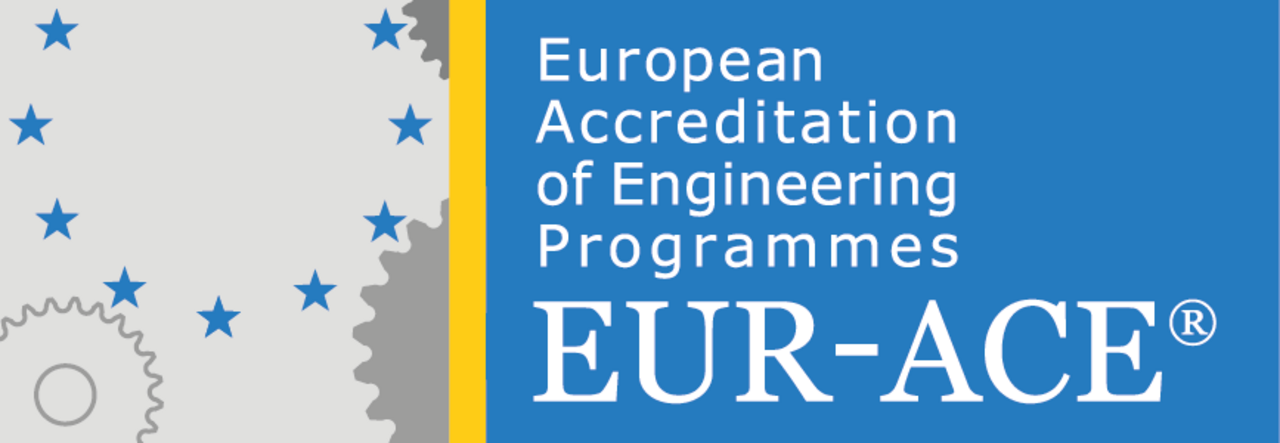
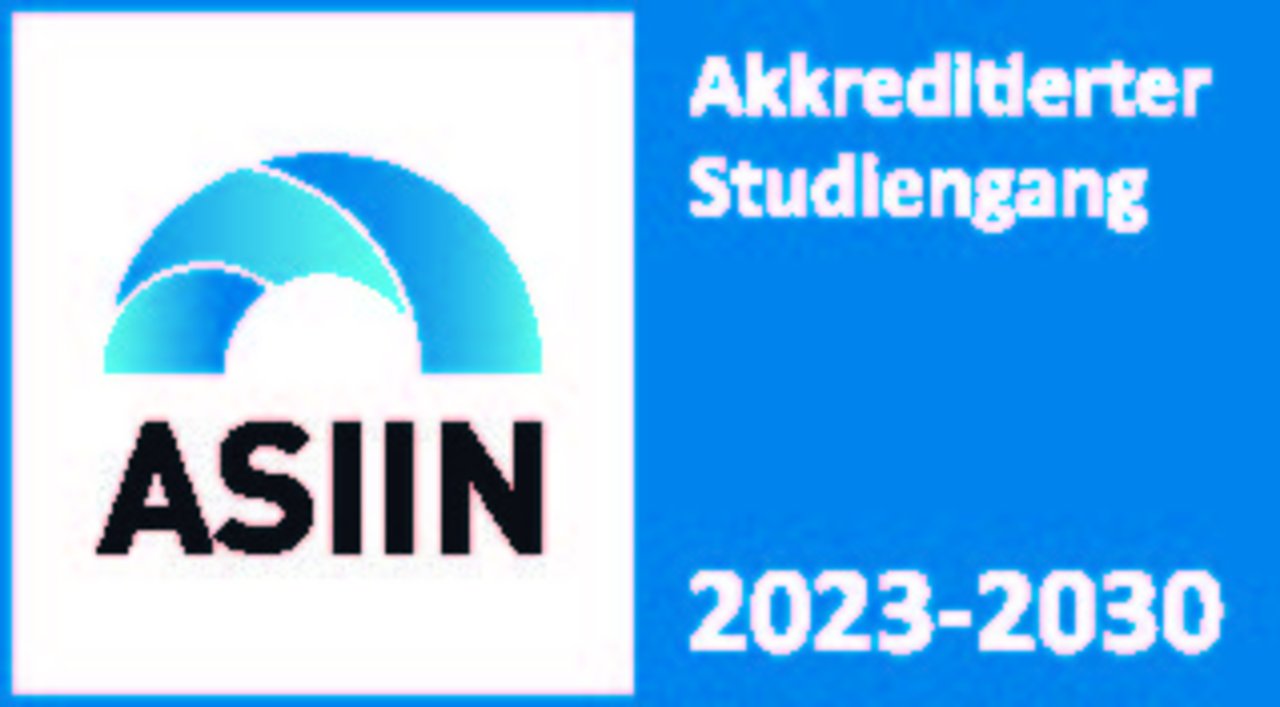
Accredited degree program
Elektrotechnik
Master of Engineering
Der Studiengang erweitert und vertieft das Fachwissen und die Fähigkeiten in den wesentlichen entwicklungs- und forschungsrelevanten Teilgebieten der Elektrotechnik, wie Embedded Systems, Automatisierungstechnik, Regelungstechnik und Robotik.
| Start | Sommer & Winter semester |
|---|---|
| Admission Criteria | Open admission (subject to entry requirements) |
| Application period | 15.11.2025 - 28.02.2026 |
| Study format | Full time, with in-depth practical experience |
| Study cost | None (only semester fee) |
| Normal duration | 3 Semester |
| Language | German |
| ECTS | 90 |
| Accredited degree program | |
   | |
Programme content
With the subject area of automation technology, in particular with specialisations in embedded systems, control engineering and robotics, content is taught that is of great importance in all branches of the electrical systems industry. In the first year of study, the Master's degree programme in Electrical Engineering includes compulsory modules as well as compulsory elective modules to deepen the knowledge and skills already acquired in the Bachelor's degree programme in the main development and research-relevant sub-areas of electrical engineering.
Project work enables students to work creatively. The knowledge acquired to date is placed in a larger theoretical context. The Master's thesis deepens these skills and competences in practical implementation.

Study programme
The Master's degree programme has a modular structure and comprises three semesters in which a total of 90 ECTS credits (30 per semester) are earned. The programme can be started in the summer semester and in the winter semester.
In the first two semesters, the compulsory modules "Embedded Systems - Project Work and Elements I and II" with a total of 20 ECTS credits cover a wide range of the main development and research-relevant areas of electrical engineering. In addition to understanding a multi-layered technical environment through intensive project work, the focus is on the further development of co-operation and teamwork skills as well as interdisciplinary methodological competence. Participation in an international competition, the "NXP Cup", is possible. Entrepreneurial behaviour is put into practice in a business simulation game. Four compulsory elective modules, each worth 5 ECTS credits per semester, also offer extensive opportunities to hone your individual profile and knowledge according to your own goals and interests. The Master's thesis in the third semester with 30 ECTS credits deepens the specialised knowledge and interdisciplinary skills, preferably in cooperation with an external company.
Modules
Example modules
- Compulsory modules: Embedded Systems - Elements (I and II), Embedded Systems - Project Work (I and II)
- Compulsory elective modules: e.g. digital circuit design, digital signal processing, electrical drives, electromagnetic compatibility, hardware-software code design, industrial image processing, control systems, circuit simulation, spectroscopic and in-vitro diagnostic procedures, business simulation, advanced topics in medical imaging and interdisciplinary project work, human-robot collaboration
Practical orientation
All degree programmes at the Faculty of Electrical and Industrial Engineering are characterised by a high degree of practical and application orientation.
In addition to the theoretical lectures, many of the modules on offer include laboratory practicals with specific content. In these, the theoretical knowledge learnt is practically tested, expanded and consolidated in our more than 20 modern laboratories. Project work also serves to creatively and practically implement what has been learnt.


